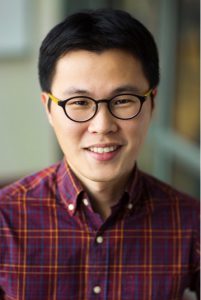Soo-hyun taught elementary school for five years before pursuing his Ph.D. in Educational Psychology, specifically within the psychological foundations of education program. Soo-hyun’s teaching experience made him interested in how students learn and think. He plans to use his degree in Educational Psychology as a way to bridge the gap between laboratory research and authentic classroom practices—ultimately, between education and learning sciences.
We asked Soo-hyun a few questions about his experience as a psych foundations student and what insights he’d like to share with prospective students. Here’s what he said:
Q: What is most exciting about your work?
“Currently, I am working on my dissertation research. It builds on the cognitive science and mathematics education literature on efficient, flexible, and adaptive strategy use in arithmetic problem-solving. Its goal is to evaluate a new proposed theoretical construct—arithmetic sense. I define this as the adaptive use of various strategies when solving complex, novel problems—for predicting individual differences in mathematical achievement among elementary school students and college students. I hope that this research will inform the development of evidence-based instruction.”
Q: How have your professors helped you along the way?
“I owe a lot to my advisor and professors in Educational Psychology. They value and listen to students’ voices. With support and collaboration from them, I have been able to complete and be involved in several research projects: 1) investigating how people reason about the educational relevance of neuroscience findings; 2) improving the proportional reasoning skills of 7th graders; 3) improving the reading comprehension of struggling readers (K-2).”
Q: How has your cohort helped you along the way?
“Before entering graduate school, I had never been to the U.S. In my first year, my colleagues helped smooth my transition in terms of language and culture. Senior colleagues in our program also provided guidance in terms of taking courses and conducting research. Now, as a senior graduate student, I would like to give back and take on this role for other students.”
Q: What would you like prospective students to know?
“Do not be afraid of exploring and learning new topics in your research.You’ll uncover many opportunities, and faculty and colleagues in your program will support and value your research interests. There are ups and downs in graduate school and life. It is important to strike a balance between work and life. Time and stress management are key in graduate school.”
Q: What are you looking forward to with graduation?
“After graduation, I plan to pursue my research at the intersection of psychology and education in a tenure-track position at a research university. Building on my graduate work and propelled by my dissertation project, I will pursue a research program investigating children’s strategic thinking when solving mathematical problems and applying these results to develop evidence-based instruction.”
Q: What do you like to do in your free time?
“I enjoy riding a bicycle or inline skating around Lake of the Isles and Lake Harriet. I look forward to the spring and summer to do these outdoor activities.”




